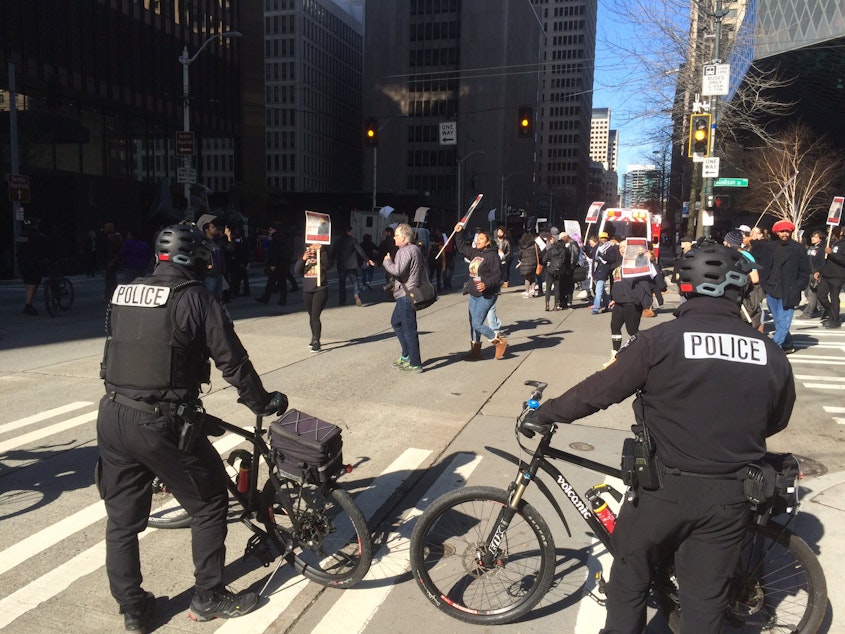Think you’re a victim of biased policing? You may soon be able to sue the city

Seattle is a step closer to getting a law that prohibits biased policing.
The proposed legislation would take the Seattle Police Department's bias-free policing policies and incorporate them into city law.
It would also allow someone who feels they've been unjustly targeted by police – because of things like race, religion or gender – to sue the city.
The ordinance passed out of a Seattle City Council committee that deals with public safety issues Wednesday. It now has to go before the full council, something that’s expected to happen next week.
Councilmember Lorena Gonzalez, a co-sponsor of the legislation, said this is something people in the community want.
"They're tired of simply having town halls, they're tired of simply providing us with public testimony about their frustrations with the lack of accountability and real teeth. And this is a clear response to those expressions of frustrations," Gonzalez said.
Gonzalez said this gives victims a real avenue for recourse.
"My hope is that the community — particularly the African-American community, the Latino community — see that this City Council is, and continues to be, committed to making sure we provide folks with every tool available to hold our officers accountable, and to hold the city as an institution accountable when it fails."
Under the ordinance, SPD would be required to collect and analyze information to make sure biased policing isn't happening.
This is already happening under the terms of a 2012 federal consent decree. But council members say they want to ensure the practice continues after the consent decree is lifted.
Councilmember and co-sponsor Bruce Harrell said he hopes the collection of data will shed light on any patterns of discrimination, conscious or unconscious.
"I could fill this room up with African-Americans who believe they were stopped because they're African-Americans. I could also fill this room up with police officers who would say they've never stopped a person because of race. So I think what we're trying to do is get at the heart of this issue that we've been dancing around, as to whether racial profiling exists and create some data," Harrell said.
Councilmember Gonzalez said she expects the legislation to pass through the full council and be signed into law.
